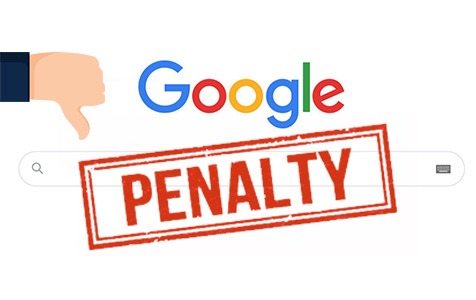7 Google Penalties And How To Prevent Your Law Firm Website From Them
25 Aug, 2021If your law firm website is operating on Google for years, you might be familiar with the frequent changes in the algorithm. These algorithms intend to provide the best experience to the users. From their changing algorithms, users might expect helpful search results but brands may get heavily penalized for violating Google's Webmaster Guidelines. Penalties are received for multiple reasons such as intentionally practicing black hat SEO practices, poor maintenance of websites, or even failing to take new algorithms into account. Violating Google's algorithms can affect your law firm negatively.
Nobody can be an expert when it comes to Google’s algorithms and rules. However, as you read this article further we have discussed 7 common penalties and tricks to handle them.
The Google penalty is imparted on websites when they are detected to be violating the webmaster guidelines. It directly affects the ranking and traffic. Penalties can be algorithmic or manual. These penalties exist till the problem is resolved.
Doorways are the websites or webpages created to rank high for specific search queries. These pages are not good for users as they can lead to multiple similar pages in search results and every result ends up taking the user to the same destination.
One such example is the HTML codes that have text filled with keywords. Doorway pages are not visible to users as they are automatically redirected to the webpage that has content.
As website owners, you should always intend to produce high-quality content for the website or hire professional content creators for the same.
A law firm can receive penalties when hiding links or text. If you do this for SEO purposes but the hidden terms offer no value to the reader, they're likely to be penalized. Some of the tricks are setting the font size zero or using white text background that is not considered a good practice. If you want to inspect if this has ever impacted your site, then check out the URL inspection tab of your search console, enter the affected pages into the search box, and then "view crawled page". There you can check for any hidden link or CSS.
Websites that invite blogs, comments, or any user-generated material can get overwhelmed by spambots or other troublesome users. For example, some people will make comments on your blog to insert an irrelevant link to their content. To prevent this, you can use a comment moderation tool that will filter and delete spammy comments. You can also manually add no-follow tags to spammy links. In case others have posted articles on your site, you can add a no-index meta tag to those pages that will make them accessible through your website but not visible in search results or consider in Google's ranking algorithm.
Link building is known to be the most effective SEO strategy, but it's important to focus on high-quality websites. Natural link building does not involve buying or exchanging links. Perform audits at regular intervals to find out who is linking to your website. You can use Google Analytics, Google Search Console, or another tool like Ahref and SEMrush.
On-page SEO involves incorporating the right keyword in headings, meta descriptions, etc. While a few more keywords in your content and it's a black hat SEO. Hence, keywords need to be fit naturally into your content. You can focus on long-tail keyword research tools to help direct your content strategy.
Your website in the hand of hackers is prone to multiple problems. From injecting malicious code, adding irrelevant content to redirecting your site to harmful or spammy pages hackers can do anything with your website. You will notice it by the decreasing website rankings. To safeguard the website, keep your content management system updated and use strong passwords that you change regularly. Always opt for a malware scanner and backup your website at intervals.
A structured data markup is a form of code that lets Google display your site's star ratings and quantity of reviews. If Google finds that you are including structured data that doesn't apply to users, you might receive a penalty. This is also a common practice that accidentally turns into a black hat SEO technique
Penalties are meant to harm your website in multiple ways be it algorithmically or manually. While for some brands it takes an eternity to recover from penalties it is not an impossible task. By avoiding any kind of black hat SEO practices, implementing security and moderation tools in your site, focusing on quality content your website can stay away from Google penalties and serve your audience with the best experience.
Is your law firm website is struggling with the Google penalties? No more worries, as Lawyer Digital Agency is here to uplift your website. We have been in the business for years collaborating with law firms and helping them recover their Google penalties. Contact us today for further consultations.
